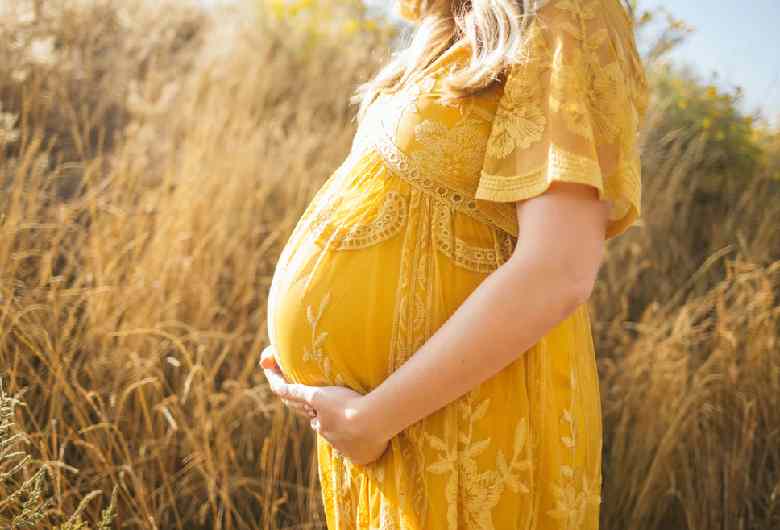Table Of Content

Once you gave birth, your estrogen plummeted back to its pre-preggo level. If you’re pregnant and think you might have anemia, talk to your doctor. A simple blood test can determine whether you need iron supplements. Female pattern baldness, or androgenic alopecia, happens when the growth phase of the lifecycle is slow, causing more time to pass before new hair is produced. Usually, androgenic alopecia is treated with medication designed to regrow hair. In addition to hormone-related hair loss during pregnancy, there are some other causes of hair loss during pregnancy that are perfectly normal.
Trademark Notice
To learn what we do to deliver the best health and lifestyle insights to you, check out our content review principles. Your best resource is your doctor to help you weigh the pros and cons of different treatment options.
Practicing stress management
If you’re pregnant and experiencing hair loss, rest assured that higher shedding rates usually don’t pose a hazard to your baby. Additionally, it might be useful to explore what color urine is in early pregnancy as part of your broader understanding of bodily changes during this special time. Below, we discuss how pregnancy can influence the hair growth cycle and helpful interventions for restoring the health of your tresses. Changes in the hormone estrogen during and after pregnancy cause postpartum hair loss.
Hormonal shift
With the exception of vitamin C, these are all commonly lower during pregnancy and in the postpartum period,” Dr. Samuel explains. You were prepared for the growing belly, the swollen ankles, the stretch marks. What you may not have been prepared for though, is the toll pregnancy can take on your hair. But for the less fortunate, pregnancy can bring the frustrating side effect of thinning or falling out hair.
If you’ve recently been wearing your hair in tight hairstyles or had certain beauty treatments, you may have traction alopecia, or hair loss due to inflammation of the follicles. This occurs due to the physical stress of certain hair products, treatments, and styles and can lead to hair shedding and loss. This can become permanent if the follicles scar, so it’s important to stop these practices as soon as you have any concern for this. The most common time women experience hair loss is in the months following childbirth. This postpartum hair loss is not the same as other types of hair loss.
Hypothyroidism is more common and affects up to 3% of pregnant patients.4 Symptoms can include hair loss as well as fatigue, muscle cramps, intolerance to heat or cold, and constipation. During pregnancy, there is an increase in the level of estrogen hormones. Estrogen causes hair to remain in a growing phase and stimulates the growth of your hair. While you are pregnant, you should expect a full, luxurious head of hair. Some people experience a cycle of regrowth and hair loss, while for others the loss is unpredictable. It’s possible, during pregnancy or any other time, to have hair loss from trauma to the hair follicles themselves.
Medical Review Policy
In this article, we will explore the factors that can contribute to severe hair loss during pregnancy, its potential causes, and some possible solutions to address this unique issue. It is a very common type of hair loss in women and people assigned female at birth. Postpartum hair loss is the excessive shedding of hair a few months after you give birth. It’s caused by hormone changes that occur during and after pregnancy. Obviously, seeing large clumps of hair in your hairbrush and excessive hair loss all of a sudden can be alarming.

Tight Hairstyles
The first trimester may stress the body as the balance of hormones shifts dramatically to support the growing baby. Stress may put more of the hairs on your head, 30 percent or more, into the telogen or “resting” phase of the hair life cycle. So, instead of losing the average 100 hairs a day, you may lose 300 hairs a day.
Last but not least: Could it be harsh hair treatments?
Some women may experience hair thinning and shedding due to stress or shock. This condition is called telogen effluvium, and it affects a small number of women during pregnancy. Both men and women lose an average of around 50 to 100 hairs each day. During pregnancy, rising estrogen levels slow down the natural cycle of hair follicle shedding. As a result, some women may actually lose fewer hairs while pregnant.
The good news is, like morning sickness, swollen limbs and many other less glamorous side effects of pregnancy, this symptom is typically temporary. She is the Medical Director for Obstetrix-Maternal-Fetal Medicine Specialists of Houston is board-certified in obstetrics and gynecology and maternal-fetal medicine. She is an active member of American College of Obstetrics and Gynecology and was recently invited to serve on the Board of The Society for Maternal-Fetal Medicine.
If you suspect you may suffer from this medical condition, it’s a good idea to ask your doctor for a blood test. We know that excessive postpartum hair shedding typically peaks around your baby’s 4-month birthday, and your normal hair growth should return by your child’s first birthday. The timeline for regaining any pre-birth hair loss is not as established as postpartum hair loss, but don’t worry.
How Does Pregnancy Affect Oral Health? - Health.com
How Does Pregnancy Affect Oral Health?.
Posted: Fri, 18 Nov 2022 08:00:00 GMT [source]
Although it may be shocking to see hundreds of hairs falling out every time you wash your hair, this is a very normal experience and one that usually resolves within six months or so. This phenomenon, termed "telogen effluvium," may manifest either in the early stages of pregnancy or during the second trimester. Encouragingly, this type of hair loss, linked to hormonal fluctuations, proves temporary and typically rectifies within six months with no enduring loss. This phenomenon, termed \"telogen effluvium,\" may manifest either in the early stages of pregnancy or during the second trimester. Making sure you’re getting adequate daily nutrition is important—both during pregnancy and after. Iron deficiency is one of the most common mineral deficiencies seen in pregnancy and can affect hair growth and loss.
Ashley Graham Reveals Her Hairline Is Growing Back in After It Fell Out Following Her Pregnancy - PEOPLE
Ashley Graham Reveals Her Hairline Is Growing Back in After It Fell Out Following Her Pregnancy.
Posted: Thu, 04 Aug 2022 07:00:00 GMT [source]
She has more than 20 years' of professional experience and hopes to log many more. If you recall commercials for products that promise to regrow hair, you might also remember a warning for pregnant people to avoid using some of these items. On a normal basis, you might lose between 50 and 100 hairs every day, according to the American Academy of Dermatology (AAD). If you’re trying a new product, it’s always best to do a patch test to make sure you don’t have an allergic reaction. And if you’re not sure whether an ingredient is baby-friendly, talk to your doctor.
If you're pregnant and seeing more hair in your brush, don't worry. By week 15, your baby may be able to respond to sound and light, while you are gaining weight and your skin and hair are changing. What to Expect supports Group Black Opens a new window and its mission to increase greater diversity in media voices and media ownership. Group Black's collective includes Essence Opens a new window, The Shade Room Opens a new window and Naturally Curly Opens a new window.

No comments:
Post a Comment